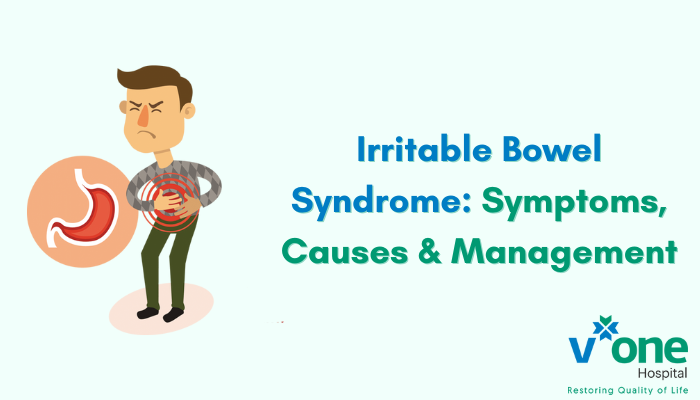Irritable Bowel Syndrome (IBS): Managing It with Lifestyle Changes
Discover what Irritable Bowel Syndrome (IBS) is, its symptoms, causes, and effective management strategies in this comprehensive guide. Learn how to manage IBS symptoms and improve your quality of life with personalized lifestyle changes and medical interventions.
Living with Irritable Bowel Syndrome (IBS) can be challenging, but with the right strategies, you can effectively manage your symptoms and improve your quality of life. In this comprehensive guide, we’ll explore what IBS is, its symptoms, causes, and practical management strategies to help you take control of your digestive health.
Understanding Irritable Bowel Syndrome (IBS)
Irritable Bowel Syndrome (IBS) is a common digestive disorder that affects the large intestine (colon). It is characterized by a group of symptoms, including abdominal pain, bloating, cramping, gas, diarrhea, and constipation. IBS is a chronic condition, meaning it persists over time, but the severity and frequency of symptoms can vary from person to person.
Symptoms of Irritable Bowel Syndrome (IBS)
The symptoms of IBS can vary widely among individuals and may include:
– Abdominal pain or discomfort, often relieved by bowel movements
– Bloating and gas
– Changes in bowel habits, such as diarrhea, constipation, or alternating between the two
– Mucus in the stool
– Feeling of incomplete bowel movement
– Fatigue and disrupted sleep
Causes of Irritable Bowel Syndrome (IBS)
The exact cause of IBS is unknown, but several factors may contribute to its development, including:
– Abnormalities in the digestive system, such as increased sensitivity to pain or changes in the gut microbiome
– Muscle contractions in the intestine
– Nervous system abnormalities
– Food intolerances or sensitivities
– Mental health issues, such as stress, anxiety, or depression
Management Strategies for Irritable Bowel Syndrome (IBS)
While there is no cure for IBS, several management strategies can help alleviate symptoms and improve quality of life:
1. Dietary Modifications
Identify and avoid trigger foods that exacerbate your symptoms. Common trigger foods include dairy products, fatty or fried foods, caffeine, alcohol, and certain fruits and vegetables. Consider following a low-FODMAP diet, which restricts fermentable carbohydrates that may worsen IBS symptoms.
2. Stress Management
Stress can exacerbate IBS symptoms, so it’s essential to practice stress-reducing techniques such as deep breathing exercises, mindfulness meditation, yoga, or regular physical activity. Prioritize self-care activities that promote relaxation and well-being.
3. Regular Exercise
Regular physical activity can help regulate bowel function and reduce stress levels. Aim for at least 30 minutes of moderate-intensity exercise, such as brisk walking, cycling, or swimming, most days of the week.
4. Probiotics
Probiotics are beneficial bacteria that can help restore balance to the gut microbiome and alleviate IBS symptoms. Consider incorporating probiotic-rich foods such as yogurt, kefir, sauerkraut, or kimchi into your diet, or talk to your healthcare provider about taking a probiotic supplement.
5. Medications
Your healthcare provider may prescribe medications to help manage specific symptoms of IBS, such as antispasmodics for abdominal pain, laxatives for constipation, or anti-diarrheal medications for diarrhea. Always follow your healthcare provider’s recommendations and report any side effects.
6. Lifestyle Modifications
Make lifestyle changes that promote digestive health, such as eating regular meals, staying hydrated, avoiding large meals, and practicing good washroom habits.
Conclusion
Living with Irritable Bowel Syndrome (IBS) can be challenging, but with the right management strategies, you can effectively manage your symptoms and improve your quality of life. By adopting a holistic approach that includes dietary modifications, stress management, regular exercise, and appropriate medical interventions, you can take control of your digestive health and enjoy a more comfortable and fulfilling life. Remember to work closely with your healthcare provider to develop a personalized treatment plan that addresses your unique needs and preferences. With dedication and perseverance, you can successfully manage IBS and lead a healthier, happier life.

